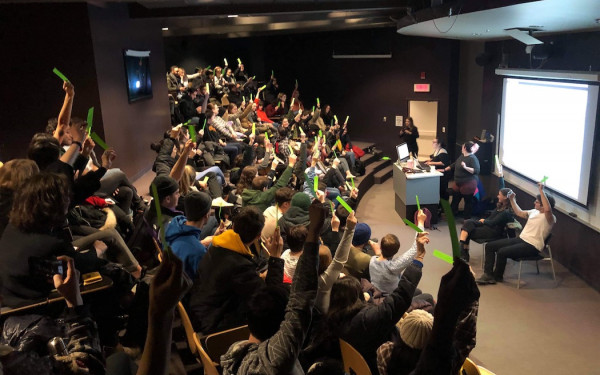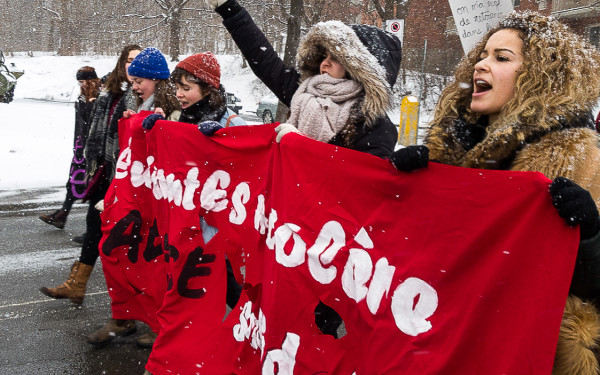Concordia Launches Two Year Plan to Improve Internships
Student in Quebec Increasingly Vocal About Unpaid Internships
After increased student mobilization around unpaid internships, Concordia will be taking on a two year plan to address the challenges that many students describe facing in their internships.
The university agreed to the proposal brought up by students from the Concordia Student Union during Friday’s Senate meeting. The university will now re-evaluate the way for-credit internships are run at Concordia, as well as the school’s policies on internships.
“Internships are a loophole in the law, they are the only way you can have free labour,” said Ali Sherra, an arts and science councillor with the CSU.
“There’s no standard of learning or evaluation, there’s inconsistencies in remuneration,” he continued. “[There’s] potential for exploitation.”
According to Concordia policy, student’s in a number of departments can only take on unpaid internships, as is the case for example for students in applied human sciences and art education. In some departments, this is the case since the provincial government enforces that some departments give accreditation on the basis of non-remuneration only.
The CSU’s push for this plan comes as student’s in Quebec have become more vocal around the question of unpaid internships.
This month at the Université du Québec à Montréal, student associations representing the faculties of education and social sciences voted in favour of holding an unlimited strike in the winter of 2019 if the provincial government fails to pass policy ensuring there’s remuneration for all internships.
The same student associations at UQAM are encouraging others to join in, and the one representing students in social sciences has scheduled a week-long strike at the end of November.
Through referendum last November, over 500 undergraduates said they were in favour of Concordia removing the requirement some internships be unpaid and said they want the school to establish a standardized system and placement protocol for all for-credit internships.
“This is not just something we’re concerned about on a personal level,” said Leyla Sutherland, former student life coordinator with the CSU. “It’s something that touches many students.”
As part of the two year plan to be led by members of Senate, the school’s highest academic decision-making body, the school will also develop plans to ensure internships are of an equal quality across all fields.
“It’s very timely precisely because of the reasons that we’ve outlined in the directions the university is taking on experiential learning,” said Graham Carr, provost and vice-president of academic affairs.
Over the year, the CSU has been critical of the way faculties evaluate credited internships. While some departments offer for-credit internships of higher payment, others vet employers to ensure students are getting the most out of the experience. The CSU has said that other departments are lagging behind.
“I’m in art education, in the specialization of art education, so that’s four internships, over 700 hours of unpaid work,” said Mikaela Clark-Gardner, academic and advocacy coordinator with the CSU.
“My last internship is four months, full time, every single day of the week. A lot of students are parents in art education, a lot of them already have jobs they have to quit.”
As part of their yearly campaign on unpaid internships, the CSU asked that a centralized system be set up to oversee the caliber of all for-credit internships within the school.
Concordia has previously addressed this complaint. In November, Vice-Provost of Experiential Learning Nadia Bhuiyan, who oversees internships within the school, told The Link internship directors are in discussions to make sure a system like this will be in place within the next two years.
Carr said those in senate who are leading the two year plan will also rely on Bhuiyan’s expertise.

_900_600_90.jpg)
_600_832_s.png)




